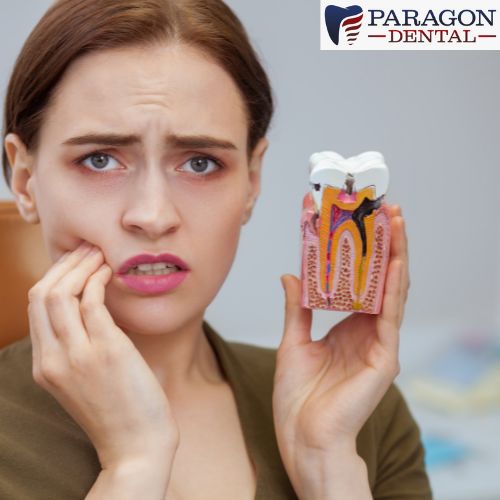
Is Bad Breath a Sign of Something More Serious?
Bad breath, or halitosis, is like an uninvited guest that overstays its welcome in your mouth. It’s an issue that can be both embarrassing and discomforting, but understanding its root causes is the first step towards ensuring fresh, minty breath.
Many attribute bad breath solely to oral hygiene, and while that’s a factor, it’s not the whole story. The mouth is a complex ecosystem, and numerous elements contribute to its overall health. Food particles lurking in your cheeks and tongue can play host to foul-smelling bacteria. Chronic dry mouth, often a side effect of medications, not only increases the risk of tooth decay but can also lead to bad breath.
In this article, we’ll delve into the intriguing world of bad breath and explore its primary causes and solutions
Oral Health Issues: Beyond Cavities
If you’re grappling with gum disease, it might be the culprit behind your less-than-pleasant breath, often accompanied by bleeding and sensitivity in your gums. Without any further delay, you should reach out to a dentist for gum disease Modesto to get help.
The key here is to remember that bad breath doesn’t always mean it’s time for a dental deep clean. Maintaining good oral hygiene is crucial, but there are other factors at play.
Food Habits: You Are What You Eat
It’s no secret that certain foods are notorious for causing bad breath. Garlic, onions, fish, and other pungent delights can leave their mark on your mouth for hours if not days. Even coffee and alcohol, beloved by many, can contribute to an unpleasant odor. Most dentists suggest brushing your teeth after meals to remove lingering food particles and plaque. Mouthwash, used as a rinse, can help neutralize odors and combat bacteria responsible for bad breath.
Gum Disease: A Stealthy Culprit
Gum disease is a common villain when it comes to bad breath. As inflammation takes root around the base of your teeth, bacteria and food debris accumulate, culminating in a foul smell as they break down. Moreover, gum disease can escalate to tooth loss, compounding your halitosis woes.
Smoking: A Foul Habit with Foul Consequences
Smoking is notorious for its association with bad breath. The chemicals in cigarette smoke create a lingering, unpleasant smell that clings to the mouth and clothing. Beyond bad breath, tobacco products are also known to stain teeth and increase the risk of gum disease, tooth decay, and various other oral health issues.
The silver lining? Quitting smoking can clear up this problem. Smokers often struggle with plaque buildup and tooth discoloration, but a combination of diligent oral hygiene and regular cleanings can help mitigate these issues.
Conclusion
Bad breath can be a persistent nuisance, it’s essential to recognize that it has various potential causes. Addressing these underlying factors through proper oral hygiene, dietary adjustments, and lifestyle changes can pave the way to a breath of fresh air and a healthier mouth. So, bid adieu to halitosis and embrace the confidence of a revitalized smile.

